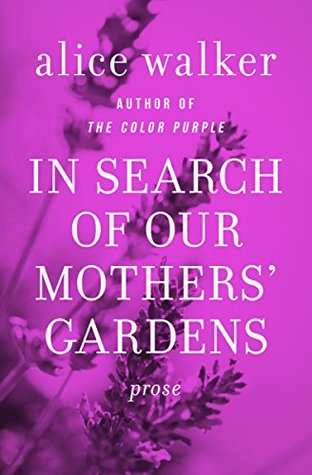More on this book
Community
Kindle Notes & Highlights
by
Alice Walker
Read between
November 18 - December 31, 2020
I write all the things I should have been able to read.
How do you show a connection between present and past when, as eloquent but morally befuddled Faulkner wrote, “the past is not even past”?
For the world is not good enough; we must make it better.
In an unjust society the soul of the sensitive person is in danger of deformity from just such weights as this.
“But grass can be greener on the other side and not be just an illusion,” I say. “Grass on the other side of the fence might have good fertilizer, while grass on your side might have to grow, if it grows at all, in sand.”
Without money of one’s own in a capitalist society, there is no such thing as independence.
Without money, an illness, even a simple one, can undermine the will. Without money, getting into a hospital is problematic and getting out without money to pay for the treatment is nearly impossible. Without money, one becomes dependent on other people, who are likely to be—even in their kindness—erratic in their support and despotic in their expectations of return.
Zora was forced to rely, like Tennessee Williams’s Blanche, “on the kindness of strangers.” Can anything be more dangerous, if the strangers are forever in control?
racism is like that local creeping kudzu vine that swallows whole forests and abandoned houses; if you don’t keep pulling up the roots it will grow back faster than you can destroy it.
“You remain mysterious to me,” I tell him. “Because I knew you so well, and now I don’t know you at all.” Perhaps it is the writer in me that is frustrated, hating loose ends of such personal significance.
In an oppressive society it may well be that all fantasies indulged in by the oppressor are destructive to the oppressed.
Our mother understood that in America white women who are truly feminist—for whom racism is inherently an impossibility—are largely outnumbered by average American white women for whom racism, inasmuch as it assures white privilege, is an accepted way of life. Naturally, many of these women, to be trendy, will leap to the feminist banner because it is now the place to be seen.


